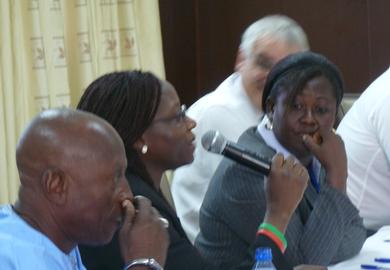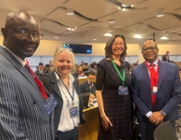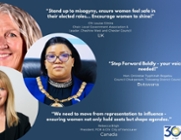Good practice in Ghana

22 July 2011
Hon Samuel Ofosu-Ampofo, Minister of Local Government and Rural Development, Ghana and member of the CLGF Board opened the first of a series of workshops dealing with decentralisation and local government good practices. Ghana hosted the workshop in Accra from 20-21 July through the National Association of Local Authorities of Ghana (NALAG) and the Ministry of Local Government and Rural Development.
Delegates at the event discussed the good practices identified as a result of a two-year CLGF programme on local economic development which has brought together local government partners from Ghana and their counterparts from South Africa and the UK. The workshop also built on the policies agreed in the CLGF 2011 Cardiff Consensus for Local Economic Development which is to be presented formally to Commonwealth Heads of Government, including HE President J E P Mills, in Perth, Australia in October 2011.
Hon Theophilus Aidoo Mensah, President, NALAG, Hon Felix Godsent Akhabue, President, Association of Local Governments of Nigeria, Hon Ahmid Fofanah, President, Local Councils Association of Sierra Leone and Carl Wright, Secretary-General, CLGF also addressed the workshop. The programme is supported by the UKAid.
The Accra workshop will be followed by similar events in India, Jamaica, Sierra Leone and South Africa organised by the Commonwealth Local Government Forum, CLGF. Both NALAG and the Ministry of Local Government and Rural Development are long-standing members of CLGF, which represents local government in the 54 member countries of the Commonwealth worldwide.
Speaking in Accra, CLGF Secretary-General Carl Wright said:
“Ghana has for a long time presented an excellent model for decentralisation and local government good practices, not only in Africa but throughout the Commonwealth.”
£I was pleased to learn about the further strengthening of local government which is currently underway, including in respect of local economic development. I am sure that our Accra workshop will provide further valuable lessons which can be applied in Ghana and elsewhere and provide the basis for our future work in West Africa.”
Back to News





